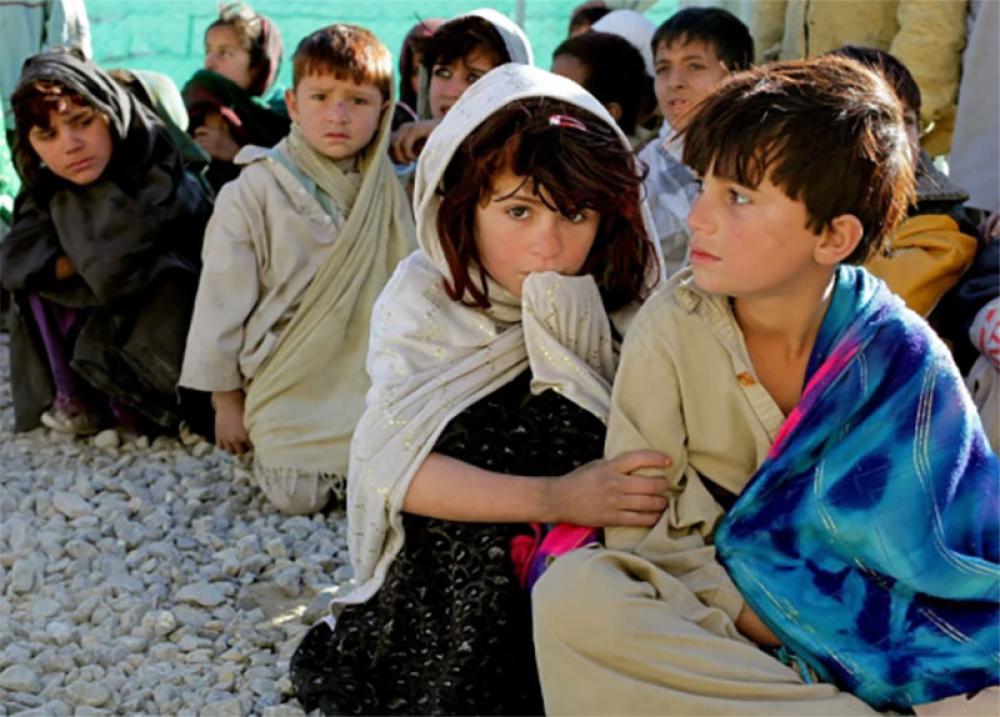Just Earth News | @justearthnews | 11 Oct 2021

Image: Pixabay
Kabul: At the end of a four-day visit to Afghanistan and Pakistan, UNICEF Deputy Executive Director Omar Abdi stressed the need for greater action to meet the increasing needs of children in both countries.
Arriving in Afghanistan amid an escalating health and nutrition crisis for children, Abdi visited the Indira Gandhi Children’s hospital in Kabul alongside UNICEF Regional Director George Laryea-Adjei and UNICEF Afghanistan Representative Hervé Ludovic de Lys. In the nutrition ward, he met dozens of children suffering from severe acute malnutrition, a life-threatening condition. Without immediate action, an estimated 1 million children in Afghanistan are projected to suffer from severe acute malnutrition in 2021 and could die. Severe outbreaks of measles and acute watery diarrhoea have further exacerbated the situation, putting more children at risk.
During his meetings with the de facto authorities in Kabul, Abdi highlighted children’s need to access basic health care, immunization, nutrition, water and sanitation, and child protection services. He called for polio, measles and COVID immunization campaigns to resume immediately to help protect children and communities from vaccine-preventable diseases.
Abdi also stressed the critical importance of ensuring all boys and girls are allowed to continue their education at all levels and participate meaningfully in building the future of their country.
“UNICEF will continue to press for the rights of every girl, boy and woman in Afghanistan. Our objective is to see an Afghanistan where every girl and every boy are in school, have quality health care, and are protected from all forms of violence,” Abdi said. “The de facto authorities, UN member states, donors and humanitarian organizations must act together immediately to prevent the humanitarian crisis from deteriorating further, in the interest of children’s survival in Afghanistan.”
After Kabul, Abdi continued on to Pakistan, where he visited a number of projects as part of the cooperation between UNICEF and the government. Abdi, who had served as UNICEF Representative in Pakistan from 2003 to 2006, visited a school, a COVID-19 and polio call centre as well as the National Emergency Operation Center in Islamabad, alongside Laryea-Adjei and UNICEF Pakistan Representative Aida Girma.
At Islamabad Model School for Girls, he met with students and teachers who use an innovative mix of digital and traditional learning to teach children.
Currently, 80 blended learning classrooms are being established in public schools in Islamabad. The lessons and activities are provided offline, using a portable device provided to all schools. This is part of a pilot by the Government of Pakistan to assist students and teachers with additional material for learning and teaching.
The COVID-19 pandemic had a devastating impact on children’s learning, with girls especially at risk. Many students were left grappling with the realities of remote learning without the right tools.
“I commend the Government of Pakistan for reopening schools across the country safely and prioritizing the vaccination of teachers, 97 per cent of whom are now vaccinated,” Abdi said. “The Ministry of Education has adopted efficient measures to promote digital learning with UNICEF support, but in-person learning remains key.”
Abdi also visited a Government warehouse using ultracold chain equipment procured by UNICEF to store Pfizer COVID-19 vaccines. The global COVAX facility has delivered more than 25 million doses of COVID-19 vaccines to Pakistan. More are expected in the coming weeks. So far, Pakistan has administered nearly 90 million doses of COVID-19 vaccines, with 32 million people now fully vaccinated. “This is a testament to the excellent coordination system put in place by the authorities at the highest levels of government,” Abdi said.
Pakistan and Afghanistan are the only countries in the world where polio remains endemic. Abdi met with partners at a COVID-19 and polio call center to promote vaccination.
“We appreciate Pakistan’s efforts to fight polio and provide safe access to polio vaccination teams across the country,” Abdi said. “We welcome the decrease in the number of polio cases. However, these gains are fragile, and we must continue vaccinating every child to end this crippling and fatal disease for good.”